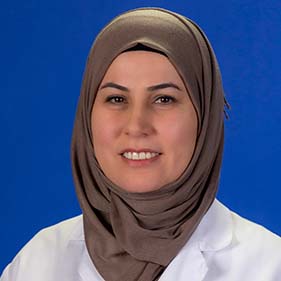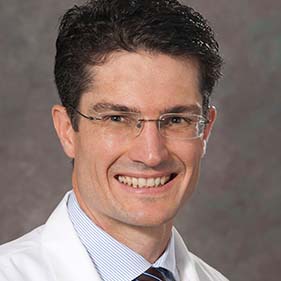A new study by UC Davis Health endocrinology researchers has shown a high prevalence of thyroid cancer among transgender female veterans. It's the first evidence of such a disparity in the transgender female population in the United States.
The researchers presented their findings this month at the American Thyroid Association Annual Meeting.
The study was prompted by what the doctors noticed while caring for patients.
"As a group of physicians, we observed anecdotally through clinical observation that among 50 transgender women in our clinic, two were diagnosed with thyroid cancer within a year," explained Hiba Tariq Basheer, health sciences assistant clinical professor of endocrinology, diabetes and metabolism.
To examine if this was an issue in a larger population, researchers evaluated data from the nationwide Veterans Administration Informatics and Computing Infrastructure database, looking at:
- Patients seen at all Veterans Health Administration sites across the United States from, Jan. 2017 to Jan. 2022.
- Patients diagnosed with thyroid cancer.
- Patients who had a diagnosis of gender dysphoria or were assigned male at birth and had ever had an estrogen or estradiol
We are being cautious with our findings, but further research is needed to ascertain the role of estrogen gender‐affirming hormone therapy and thyroid cancer."-Hiba Basheer
Of the roughly 9 million veterans seen during that time, 9,988 were determined to likely be transgender women. Of those patients, 34 had verified thyroid cancer, representing a prevalence of 0.34% among transgender female veterans.
In comparison, thyroid cancer prevalence among male veterans who were assigned male at birth was 0.19% and the rate among those assigned female at birth was 0.44%, according to the National Cancer Institute.
Thyroid cancer has long been diagnosed more commonly in women than in men. Thyroid cancer occurs in women 3-4 times more often than it occurs in men according to the American Thyroid Association. However, a clear biologic reason has not been found to explain the difference.
"The role of estrogen in the development of thyroid cancer is complex," said Michael J. Campbell, chief of endocrine surgery at UC Davis Health. "We know from experimental studies that estrogen probably has a role in the pathogenesis of thyroid cancer, but our knowledge on the mechanism of how estrogen affects tumor development, and its significance remains limited."
We know from experimental studies that estrogen probably has a role in the pathogenesis of thyroid cancer, but our knowledge on the mechanism of how estrogen effects tumor development and its significance remains limited." -Michael Campbell
Co-authors on the research included Basheer; John Christensen, endocrinology fellow; and Jose Joaquin Lado Abeal, chief of endocrinology, diabetes and metabolism.
The team noted that more research is needed due to the small size of the thyroid cancer cohort and some missing information in the medical records.
"We are being cautious with our findings, but further research is needed to ascertain the role of estrogen gender‐affirming hormone therapy and thyroid cancer," added Basheer.








